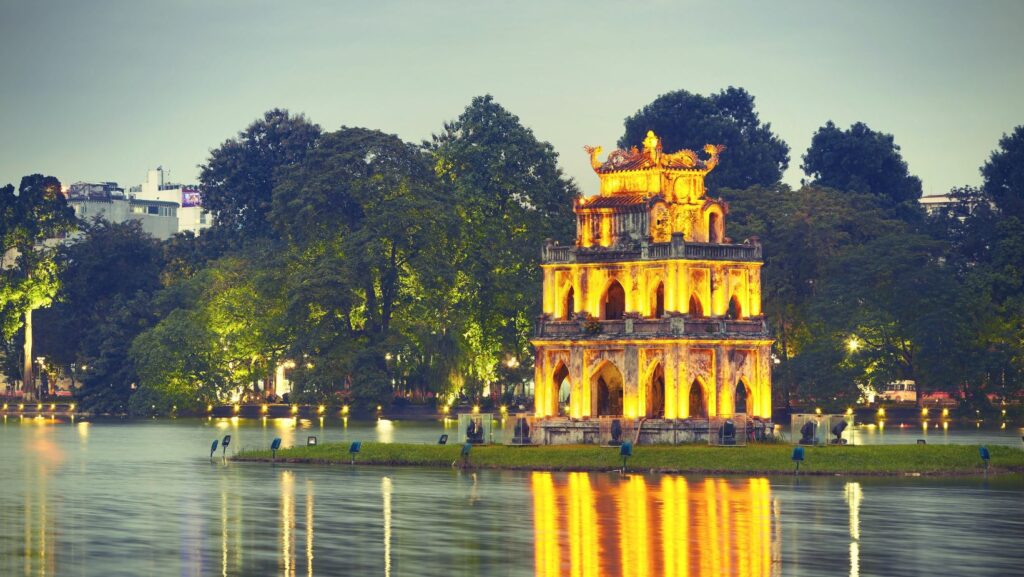
Vietnam has become a magnet for expatriates seeking a unique blend of vibrant culture, stunning landscapes, and economic opportunity. From the bustling streets of Ho Chi Minh City to the tranquil bays of Ha Long, the country offers a diverse range of experiences that attract professionals, retirees, and adventurers alike.
Expats in Vietnam
Vietnam offers expatriates a dynamic mix of economic opportunities and an appealing lifestyle characterized by a low cost of living. This section explores the economic prospects and everyday life costs that attract expatriates to Vietnam.
Economic Opportunities
 Expatriates find Vietnam an attractive place for economic advancement thanks to its rapidly growing economy. Key sectors such as technology, manufacturing, and services are expanding, creating numerous job opportunities for skilled professionals. Companies often seek expertise in areas like IT, engineering, and business development, which opens doors for well-paying positions for expatriates. Additionally, Vietnam’s startup scene is vibrant, with government support and a young, tech-savvy population driving innovation. This environment makes it conducive for expatriates to either find employment or start their own ventures.
Expatriates find Vietnam an attractive place for economic advancement thanks to its rapidly growing economy. Key sectors such as technology, manufacturing, and services are expanding, creating numerous job opportunities for skilled professionals. Companies often seek expertise in areas like IT, engineering, and business development, which opens doors for well-paying positions for expatriates. Additionally, Vietnam’s startup scene is vibrant, with government support and a young, tech-savvy population driving innovation. This environment makes it conducive for expatriates to either find employment or start their own ventures.
Lifestyle and Cost of Living
Living in Vietnam can be significantly cheaper compared to many Western countries, making it an ideal location for expatriates seeking a high quality of life without exorbitant costs. Housing ranges from affordable apartments in bustling city centers to quieter, suburban homes, providing options for various preferences and budgets. Daily expenses such as food, transportation, and entertainment are also reasonably priced. A meal at a local restaurant typically costs a fraction of what one might pay in a Western country, and public transport is both accessible and affordable. Moreover, the rich cultural experiences, from historic sites to contemporary arts, enhance the living experience without hefty price tags.
Challenges Expats Face in Vietnam
Cultural Adjustments
 Expatriates in Vietnam must navigate a landscape rich in traditions and social norms that may differ significantly from their own. Vietnamese culture places a strong emphasis on community, respect for elders, and familial obligations. Expats often find the local etiquette around communication, such as avoiding conflict and overt displays of affection, quite different from Western practices. Festivals like Tet (Vietnamese New Year) and other communal activities are central to social integration but can initially be overwhelming for foreigners. Understanding and respecting these cultural values is crucial for a successful adaptation and enjoyable living experience in Vietnam.
Expatriates in Vietnam must navigate a landscape rich in traditions and social norms that may differ significantly from their own. Vietnamese culture places a strong emphasis on community, respect for elders, and familial obligations. Expats often find the local etiquette around communication, such as avoiding conflict and overt displays of affection, quite different from Western practices. Festivals like Tet (Vietnamese New Year) and other communal activities are central to social integration but can initially be overwhelming for foreigners. Understanding and respecting these cultural values is crucial for a successful adaptation and enjoyable living experience in Vietnam.
Language Barriers
Vietnamese, the official language, poses a substantial challenge for many expatriates. Its tonal nature and regional dialect variations make it difficult for newcomers to learn and use effectively in daily interactions. Despite a growing number of English speakers , particularly in urban centers like Ho Chi Minh City and Hanoi thanks to the rise of TESOL jobs in Vietnam, communication outside these areas or in professional settings such as government offices often requires basic Vietnamese proficiency.
Living Conditions in Major Cities
Housing and Accommodation
 Housing options in Vietnam’s major cities, such as Ho Chi Minh City and Hanoi, vary widely, catering to different preferences and budgets. Apartments in modern condominiums are popular among expatriates, offering amenities such as security, gyms, and swimming pools. Rent for a one-bedroom apartment in the city center ranges approximately from $500 to $1,000 per month, depending on the city and the specific area. Those seeking a more local experience might opt for traditional Vietnamese houses, which can be more affordable but less equipped with modern facilities.
Housing options in Vietnam’s major cities, such as Ho Chi Minh City and Hanoi, vary widely, catering to different preferences and budgets. Apartments in modern condominiums are popular among expatriates, offering amenities such as security, gyms, and swimming pools. Rent for a one-bedroom apartment in the city center ranges approximately from $500 to $1,000 per month, depending on the city and the specific area. Those seeking a more local experience might opt for traditional Vietnamese houses, which can be more affordable but less equipped with modern facilities.
Transport and Infrastructure
Major cities in Vietnam are characterized by dense traffic and an extensive network of roads. The public transport system includes buses, and in cities like Hanoi and Ho Chi Minh City, metro systems are under development. Taxis and ridesharing services like Grab are readily available and provide a convenient option for expats. However, many expatriates prefer to use motorbikes, a common and flexible mode of transport, which allows for easier navigation through traffic.
Health Care Services
Healthcare facilities in major Vietnamese cities meet international standards, with several hospitals and clinics equipped with modern medical equipment and trained staff. Expatriates often use private healthcare services, which provide higher quality care with English-speaking doctors and shorter wait times. Notable facilities include the French-Vietnamese Hospital in Ho Chi Minh City and the International SOS Medical Clinic in Hanoi.


